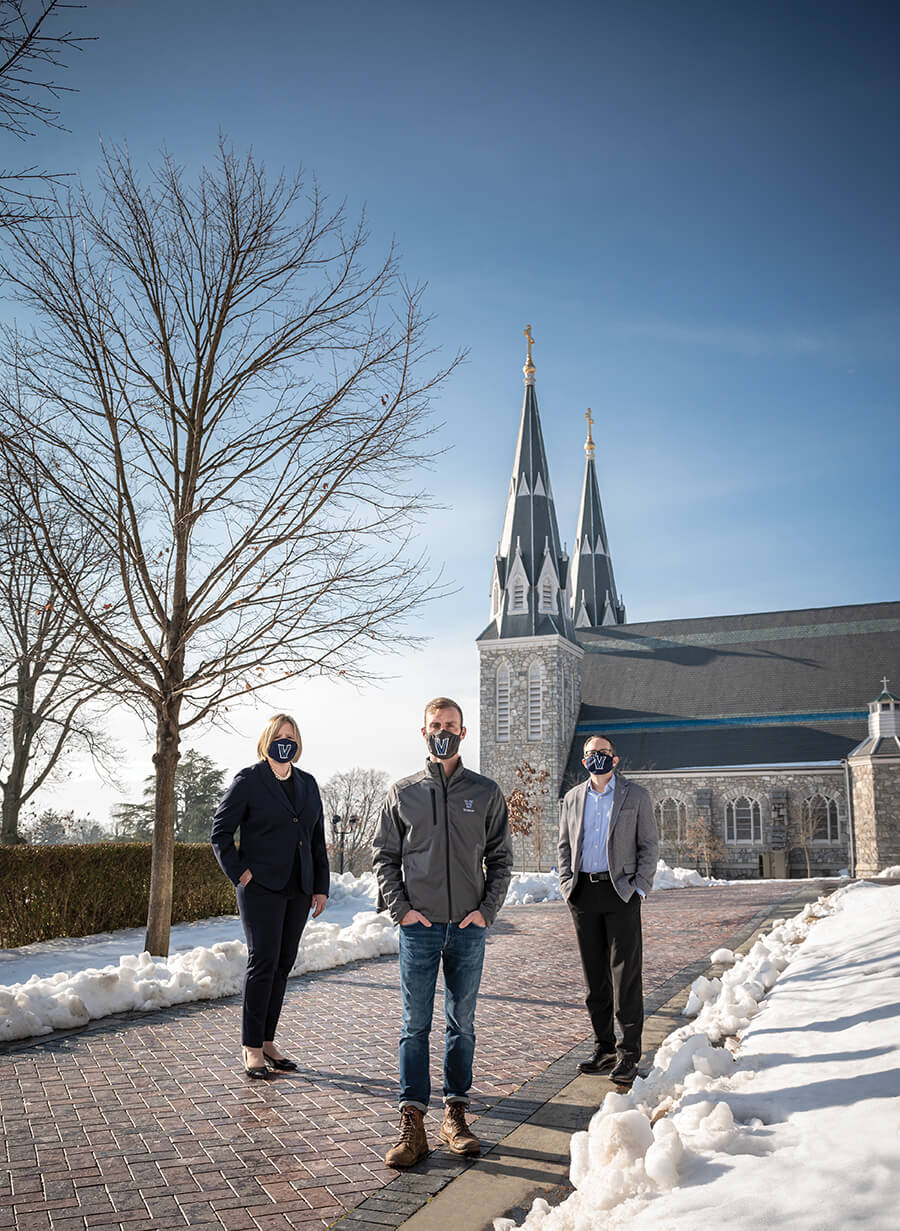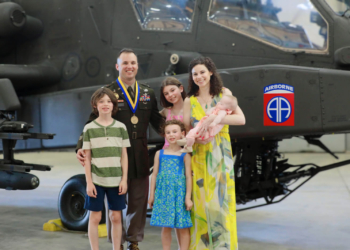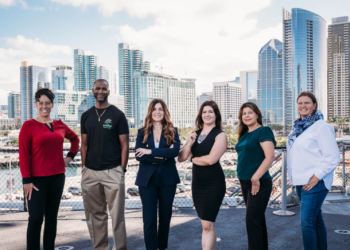When Chad Allen was preparing for his transition from the Marine Corps, he saw a recurring theme among job listings: degree needed.
Allen, who served in the Marines for 11 years, is among nearly 200,000 veterans that exit the military annually, according to the Department of Veterans Affairs. The VA ranks entering the workforce as a leading challenge for service members who are making the move to civilian life. And it is what led Allen to explore education opportunities long after he last sat in a classroom.
The former drill instructor enlisted after 9/11 because he says he wanted to serve his country. Specifically, he chose the Marine Corps because of its reputation.
“The Marines are the most prestigious. It was the ultimate challenge; go big or go home,” he said.
In 2014, as Allen made the transition and was looking into career fields, he found post-secondary education to be a continuous requirement among employers.
“When I made the decision that I was getting out of the Marine Corps, as I was looking for jobs — searching job listings — I saw a bachelor’s degree almost always listed. I knew it was going to be something that I had to accomplish and I had the GI Bill, so I figured I would take full advantage of that,” he explained.
The Post-9/11 GI Bill affords student veterans with up to 36 months of education benefits, which includes money for tuition, housing, books, and fees. In the same way that Allen pursued a career in the Marines because of its prestigiousness, he said he wanted that same standard for the institution where he would invest those earned benefits. Through his involvement in a tight–knit veteran community in Philadelphia, Pennsylvania, Allen would come to meet another veteran who would help put such a school on his radar.
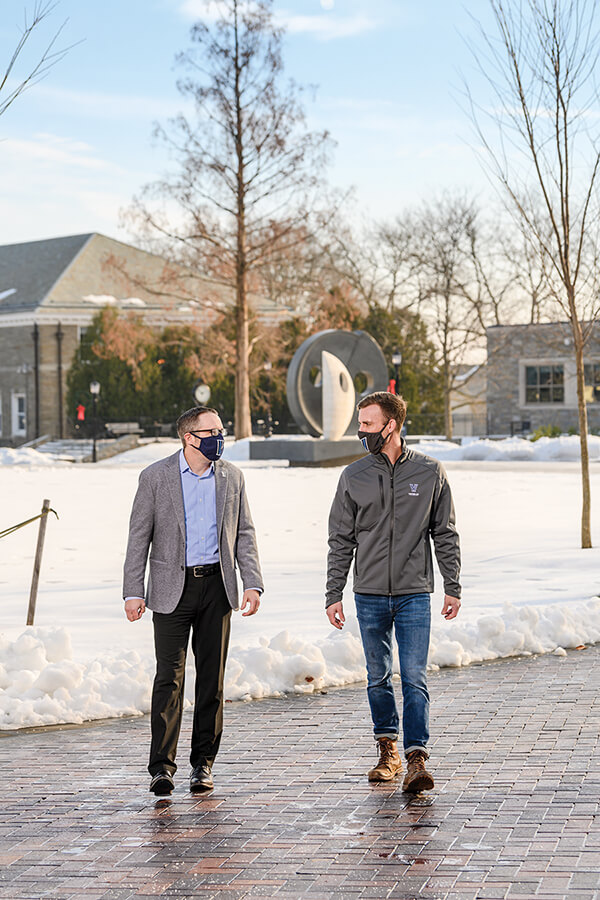
Army veteran Michael Brown is the Director of the Office of Veterans and Military Service Members at Villanova University. His position was added to the university’s staffing roster in 2018 to grow programs, opportunities, and community for students and alumni.
After graduating from high school, Brown said he wasn’t quite ready for college, and after speaking with other members of his family who were in the military, he decided to enlist in the Army as an infantryman. His four-year career included a deployment to Bosnia with the 1st Armored Division. When he left the military, he enrolled at a state school in Michigan using his Montgomery GI Bill to major in political science and applied ethics.
“I found myself as one of the oldest students in the classroom and just getting back from a deployment and being overseas, it was an interesting experience. I think I appreciated college much more,” he said.
In 2006, Brown was hired to work for then Congressman-elect Patrick Murphy, the first Iraq War veteran ever elected to Congress. In that role, Brown conducted outreach within the community to help determine the needs of the next generation of student veterans. These efforts helped Murphy’s office with some legislative adjustments and modifications to the Post-9/11 GI Bill.
Just as Brown explained the value of having veterans serve in key decision-making positions, like government, he sees the same need within academia in order to create a campus culture that is veteran ready. And that readiness starts with how resources are presented before the service member even leaves the military, Brown says. A process he equates to drinking from a firehose.
“One of the things I see, still, is the TAP [Transition Assistance Program] class upon exit from the military overloads soon-to-be veterans with information that should be more localized,” Brown said.
Other barriers to education he describes occur at the moment a student veteran gets to college. He has worked to craft an experience similar to a first-year student enrolling straight from high school.
“I think the experience [for student veterans] should be like that of an 18-year-old. What I mean by that is, they should be introduced to everything in an orientation that an 18-year-old is, they should be made aware of what’s going on in and around campus with a specific lens for who they are — a non-traditional student. They may be a little bit different, a little bit older, but I think they are also college students. That is why the creation of offices like mine help. I want their experience to be as Villanova as it can be,” Brown explained.
Since being in his position, Brown has developed partnerships with military support organizations, like VetLink — part of Service to School, a 501(c)(3) non-profit organization that provides free application counseling, peer-to-peer guidance, and networking support at no cost to the applicant.
Other priorities for his office include:
- Construction of a new veteran student center that is scheduled to open in the fall,
- Connect employers with students for interview prep, resume review and job opportunities,
- Grow the student veteran population on campus, and
- Expand partnerships with entities that can enhance the student experience.
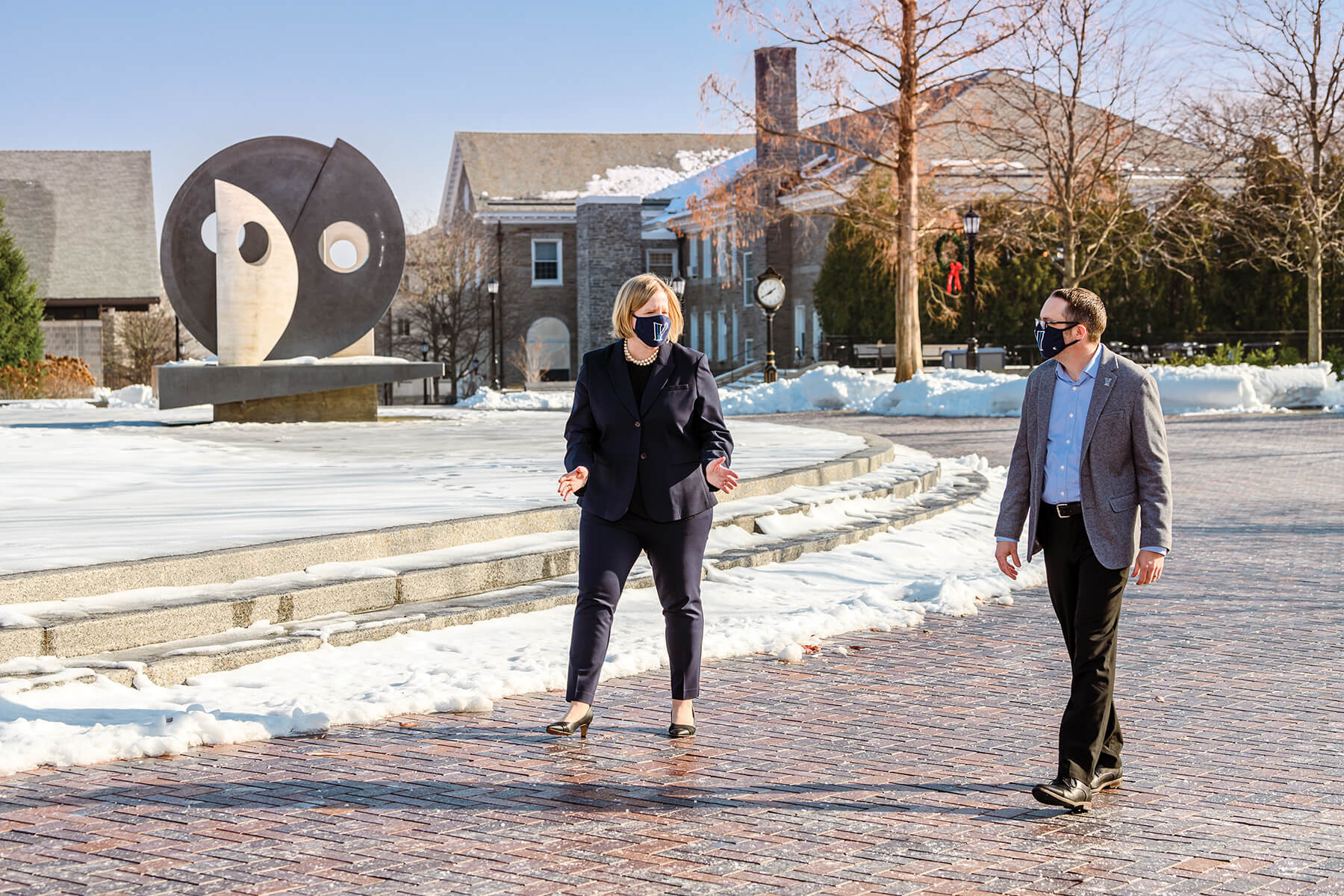
Villanova University is a Catholic university founded in 1842 by the Order of Saint Augustine. One of the cornerstones of its academic culture is service, says Dr. Christine Kelleher Palus, Dean of Villanova University’s College of Professional Studies, making it a “natural fit” for service members, veterans, and their family members.
“We have a long tradition of serving veterans at Villanova, and we are continuously striving to offer new and relevant programs that can ultimately help these students find careers after their service,” Palus said. “For example, this semester we launched a new Bachelor of Interdisciplinary Studies with a major in Entrepreneurship, as well a new professional certificate in Business Process Improvement Essentials. Through our partnership with the Office of Veterans and Military Service Members, we will continue to develop new programs that appeal to students with a military background, as well as provide an excellent experience throughout their time with us.”
She added that the university recognized it could serve military students more strongly, and Brown’s position is a key part of that strategy.
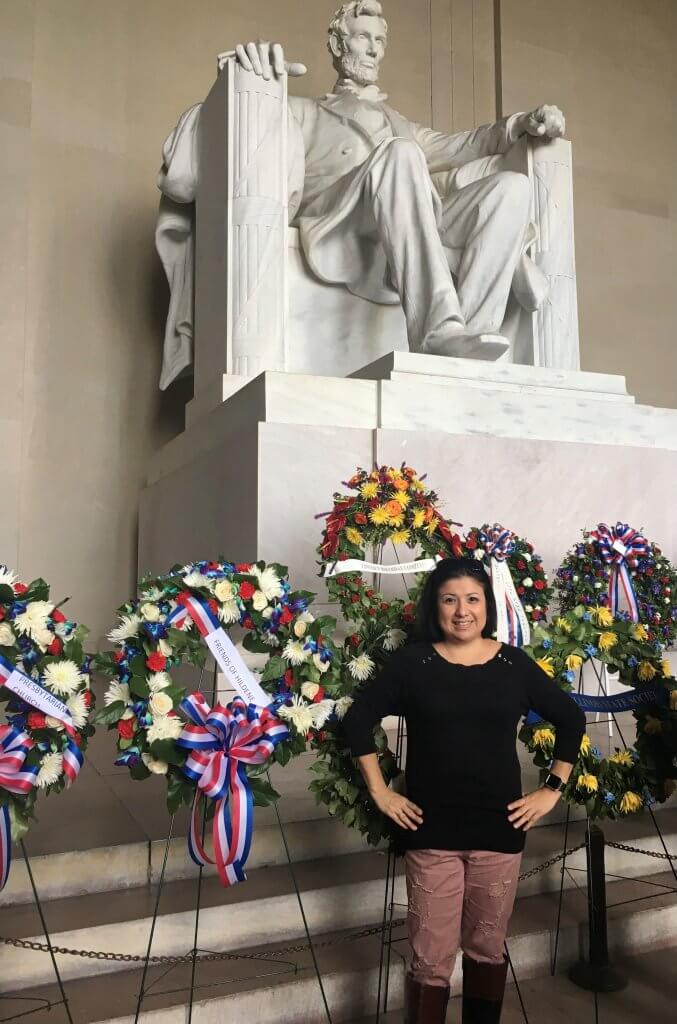
And students, like Air Force Master Sgt. Josie Ojeda, say the Villanova team has succeeded in its mission.
The DC-based airman is a student majoring in organizational development & management and minoring in leadership. She initially attended Villanova for a non-credit certificate program.
“By obtaining the Lean Six Sigma certificate I gained the necessary tools to help organizations improve their capability and for them to reach their potential. My passion is to help others on this journey and it gives me great joy seeing the outcome and truly enjoy helping the others do what they do best in their personal and professional settings,” Ojeda said.
Her experience with the program led her to pursue an undergraduate degree last year. The university’s online and in-person resources have helped her balance coursework while in uniform. She recommends two considerations for her peers choosing a similar path.
- Research the school where you would like to obtain your degree. Write your pros and cons of the schools so that you are able to make the best decision.
- Focus on timing. Consider your short–and long–term education goals. Determine when the best time is to start.
“Many times, in my own military career, I thought I was ready to complete my degree but then other issues would arise. Failing to do so could lead to losing interest or not giving it 100%,” she added.
One way to feel more connected to a school, even from a distance, is to become immersed in campus culture. For Ojeda, that meant serving on the College of Professional Studies’ Diversity, Equity and Inclusion Committee.
“I was selected for this committee in the fall of 2020, which is in the early stages of developing its platform,” she said. “I enjoy being involved in my school community and look forward to sharing my experiences while at Villanova. I am excited for the awesome journey ahead.”
Ojeda also encourages others to explore the vast financial aid resources afforded to those in the military, including tuition assistance and branch-specific COOL programs.
As for Allen, who is also majoring in organizational development and management while running a construction business, he echoes Ojeda’s statement about the support system in place at Villanova University. He began his program in 2020, right before the coronavirus pandemic hit.
“The people and the staff have really helped me to succeed. So, being in the military, it’s all about community and camaraderie. And I have that same exact thing at Villanova. I said the Marine Corps is the most prestigious, in my opinion Villanova is too. It’s very in line with the Marine Corps as far as support and values,” he said.
Visit villanova.edu/cps-military for more information on programs and admissions for veterans, military personnel, and their families.
Read comments


